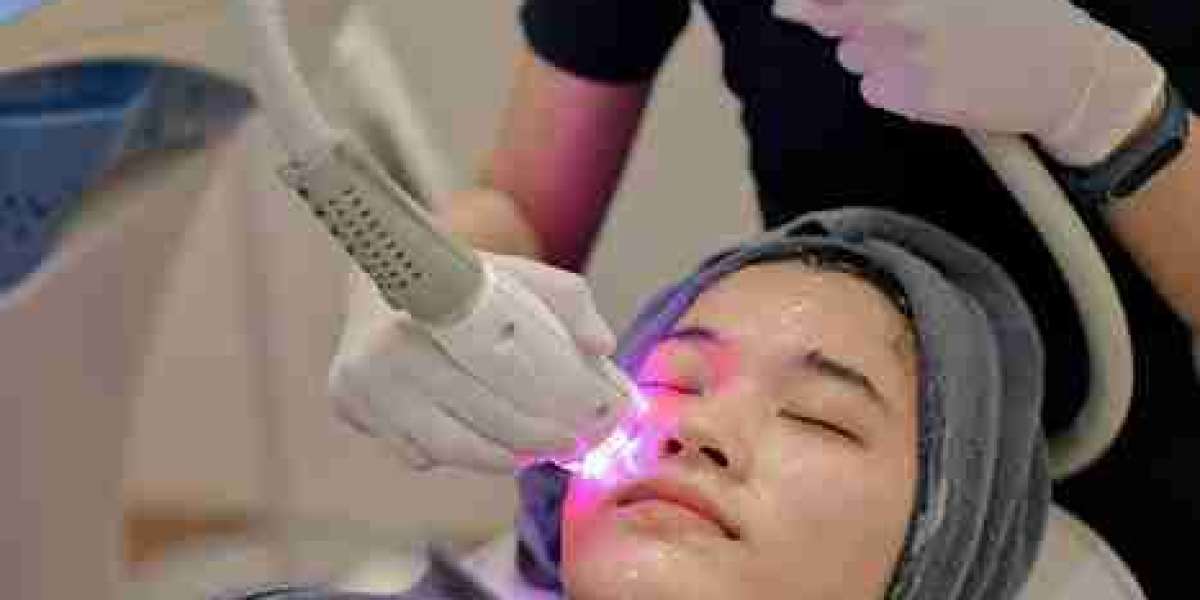Laser hair removal has become a widely sought-after cosmetic procedure for those looking for long-term hair reduction. However, some individuals may notice changes in skin tone following treatment, particularly in the form of hyperpigmentation. While usually temporary, this side effect can cause distress and impact skin confidence. Understanding what causes it and how to manage it effectively is crucial for those undergoing this treatment.
What Is Hyperpigmentation?
Hyperpigmentation refers to darkened patches of skin caused by increased melanin production. It can occur for several reasons, but in the context of laser hair removal Northampton, it's often a result of the skin's response to the energy and heat from the laser.
There are two primary types:
- Post-inflammatory hyperpigmentation (PIH) – Caused by trauma or inflammation to the skin, often seen after cosmetic procedures.
- Sun-induced pigmentation – Triggered when recently treated skin is exposed to UV rays.
Causes of Hyperpigmentation After Laser Hair Removal
Understanding what contributes to post-laser pigmentation can help in both prevention and treatment. Some of the common causes include:
- Skin tone: Darker skin types may be more prone to PIH due to higher melanin levels.
- Sun exposure: Unprotected exposure before or after treatment can increase pigmentation risk.
- Incorrect laser settings: Using the wrong wavelength or energy intensity can cause skin trauma.
- Improper aftercare: Skipping post-treatment guidelines such as sunblock or moisturiser can hinder healing.
Early Signs and Symptoms to Watch For
Pigmentation doesn’t always appear immediately. You may notice:
- Dark brown or greyish patches
- Uneven skin tone in the treated area
- No pain or swelling, unlike burns
Preventive Measures Before and After Treatment
Pre-Treatment
Taking care before the laser session reduces the chances of pigmentation:
- Avoid tanning – Natural or artificial tanning increases skin sensitivity.
- Use a gentle exfoliant – This helps prepare the skin and removes dead cells.
- Consult an experienced provider – This ensures appropriate settings for your skin type.
Post-Treatment
Once the session is complete, follow these precautions:
- Apply sunscreen daily – Use SPF 30 or higher for at least two weeks.
- Avoid heat and friction – No hot showers, saunas, or tight clothing over treated areas.
- Do not pick or scrub – Allow the skin to heal naturally.
These preventive actions support better results and reduce the risk of complications, including pigmentation.
How to Treat Hyperpigmentation Effectively
Once pigmentation has developed, early and consistent treatment is key. Here are reliable options:
Topical Treatments
- Hydroquinone: A common depigmenting agent that lightens the skin over time.
- Retinoids: These promote cell turnover and help fade dark spots gradually.
- Azelaic Acid or Kojic Acid: Gentler options for sensitive skin.
Always consult a skincare specialist before applying these products.
Cosmetic Procedures
If topical agents don’t offer sufficient results, other treatments may help:
- Chemical peels: Mild acids remove the top layer of skin to reduce pigmentation.
- Microdermabrasion: Gently exfoliates the surface layer to promote new skin growth.
- Laser skin rejuvenation: A different laser type can target pigmentation more specifically.
Skincare Routine Adjustments
Making a few changes to your daily regimen can also support skin healing:
- Use fragrance-free and alcohol-free products.
- Incorporate soothing ingredients like aloe vera and niacinamide.
- Keep the skin hydrated with non-comedogenic moisturisers.
These steps not only reduce hyperpigmentation but also improve overall skin health.
Duration and Recovery
The timeline for pigmentation to fade can vary depending on skin type, severity, and treatment. Typically:
Severity | Estimated Recovery Time |
Mild (light patches) | 2–4 weeks |
Moderate | 1–3 months |
Severe (deep pigmentation) | 3–6 months or more |
It is essential to remain patient and follow treatment protocols consistently.
Role of Professional Support
Attempting to treat post-laser pigmentation without expert input can lead to further issues. Visiting a Private dentist in Northampton or a skincare specialist trained in post-laser management ensures that your condition is assessed professionally and treated appropriately.
Professionals will:
- Identify the type and cause of pigmentation
- Recommend appropriate products and treatment options
- Monitor your progress and adjust the approach as necessary
Choosing the Right Clinic for Laser Hair Removal
Your treatment provider plays a major role in preventing and managing pigmentation. Consider these factors:
- Qualified practitioners – Ensure your provider has certified training in laser aesthetics.
- Appropriate equipment – Clinics should use FDA-approved devices tailored to different skin types.
- Aftercare support – A good clinic provides detailed post-treatment instructions and follow-ups.
Selecting a reputable provider for Laser Hair Removal in Northampton can significantly reduce the risk of complications and improve your experience overall.
Myths About Hyperpigmentation After Laser Treatment
Let’s clear up a few misconceptions:
- "It only happens to dark skin tones" – While more common in darker tones, it can affect all skin types.
- "It’s a sign of poor treatment" – Even correctly performed treatments can sometimes result in pigmentation.
- "It’s permanent" – Most pigmentation fades with time and care.
Being informed helps manage expectations and encourages the right course of action.
Long-Term Skin Maintenance Tips
Once the pigmentation has resolved, keeping your skin healthy and even-toned requires ongoing attention. Here’s how:
- Continue using sunscreen daily
- Hydrate and nourish your skin with quality skincare products
- Avoid repeated irritation in the same area
- Space out laser sessions appropriately as advised
Maintaining these habits can prevent recurrence and contribute to smoother, healthier skin.
Conclusion
Hyperpigmentation following laser hair removal is manageable with the right approach. By taking preventive measures, recognising early signs, and seeking professional help, you can restore even skin tone effectively. Whether you’re seeking guidance from a Private dentist in Northampton who offers aesthetic services or planning your next session of Laser Hair Removal in Northampton, be sure your provider values skin safety and recovery as much as results.If you’re considering cosmetic treatments and want professional care tailored to your skin’s needs, EDN offers guidance and support throughout your journey to smooth, healthy skin.














